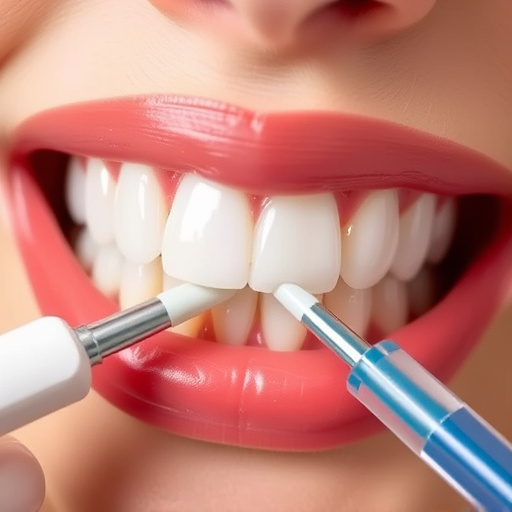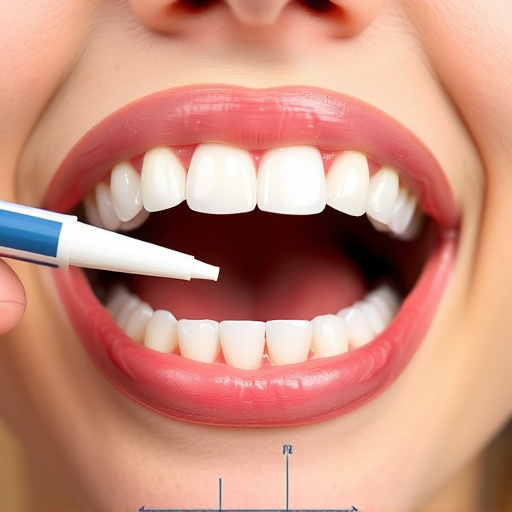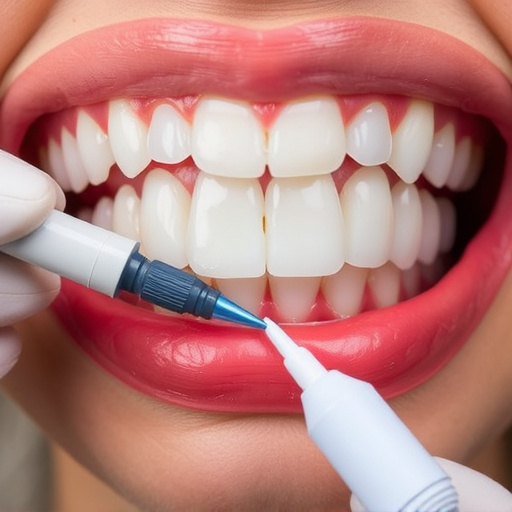Mini dental implants offer a less invasive and faster solution for tooth replacement, bypassing bone grafting by attaching directly to the jawbone. Ideal for patients with inadequate jawbone volume, they enable quicker healing and recovery compared to traditional implant surgeries, making them suitable for adults and children. However, dental professionals must assess each patient's oral health and anatomy to ensure mini implants are the best course of action.
Discover the revolutionary world of mini dental implants, a game-changer in dental restoration. This comprehensive guide explores these smaller, more advanced implants that efficiently address tooth loss without the need for bone grafting. Learn how their unique design and placement strategies make them an attractive alternative. Understand the benefits, considerations, and potential advantages over traditional methods, offering a simpler path to restoring your smile.
- Understanding Mini Dental Implants: A Comprehensive Overview
- How Mini Implants Avoid Bone Grafting Requirements
- Benefits and Considerations for Mini Dental Implant Procedures
Understanding Mini Dental Implants: A Comprehensive Overview
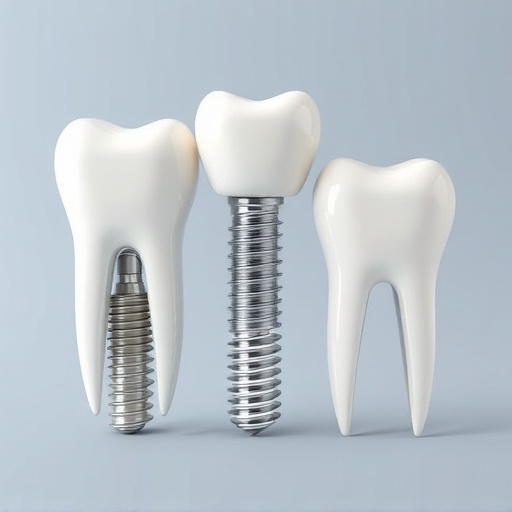
Mini Dental Implants are a revolutionary advancement in dental technology, offering a more efficient and less invasive alternative to traditional dental implant procedures. Unlike standard implants that often require bone grafting to create a solid foundation for artificial teeth, mini implants provide a unique solution. These miniature devices are designed to be placed directly into the jawbone, eliminating the need for additional surgical procedures.
This comprehensive dental care approach is particularly beneficial for patients seeking tooth replacement options, especially in cases where bone loss or insufficient bone density is a concern. Mini dental implants are surgically inserted, providing immediate stability and support for crowns, bridges, or dentures. The procedure’s simplicity and faster recovery time make it an attractive choice for both adults and children’s dentistry, ensuring comfort and a more streamlined process without the complexities of traditional implant surgeries.
How Mini Implants Avoid Bone Grafting Requirements
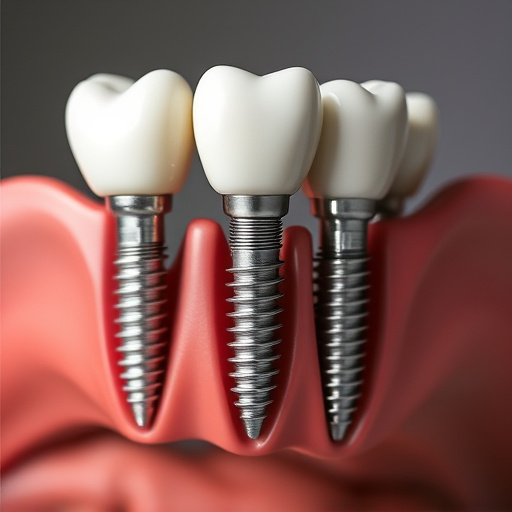
Mini dental implants offer a revolutionary approach to tooth replacement, eliminating the need for traditional bone grafting procedures. This advanced technique is particularly beneficial for patients who may have inadequate or fragile jawbone structure, a common concern after tooth loss or prolonged periodontitis. Unlike conventional implants that require a robust jawbone to support them, mini implants are designed to interact directly with the soft tissue of the gums, bypassing the need for bone grafting surgeries.
The process involves placing smaller, more precise implants into the gum tissue, which can heal and osseointegrate just as effectively as larger implants do with bone. This method is less invasive, reduces patient downtime, and often results in faster recovery times compared to traditional dental implant procedures involving bone grafting. Moreover, it allows individuals who may have previously been unsuitable candidates for dental implants due to insufficient bone mass to restore their oral health and smile through comprehensive dental care options like teeth cleaning and regular dental check-ups.
Benefits and Considerations for Mini Dental Implant Procedures
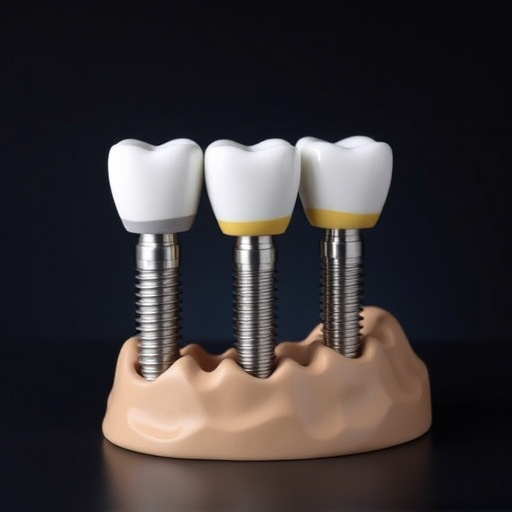
Mini dental implants offer a range of benefits for those in need of dental restoration. One of the key advantages is their ability to avoid the often lengthy and invasive process of bone grafting, which is typically required with traditional dental implant surgeries. This makes mini implants an attractive option for individuals seeking a quicker, less complex solution to replace missing teeth.
When considering mini dental implant procedures, it’s essential to weigh the potential advantages against specific patient needs. For instance, these implants might be particularly suitable for those who have insufficient bone volume in certain areas of the jaw, a common issue after wisdom tooth removal or following restorative treatments like clear aligner therapy. However, not all cases are ideal for mini implants, and dental professionals must assess each patient’s oral health and anatomy to determine if this procedure is the best course of action.
Mini dental implants offer a groundbreaking solution for those needing tooth replacements, eliminating the need for bone grafting in many cases. This advanced dental technology provides a more efficient and sometimes less invasive procedure, ensuring patients can regain their smile and oral function with minimal discomfort. By understanding how these mini implants work and considering their benefits, individuals seeking tooth restoration can make informed decisions about their oral health and overall well-being.








